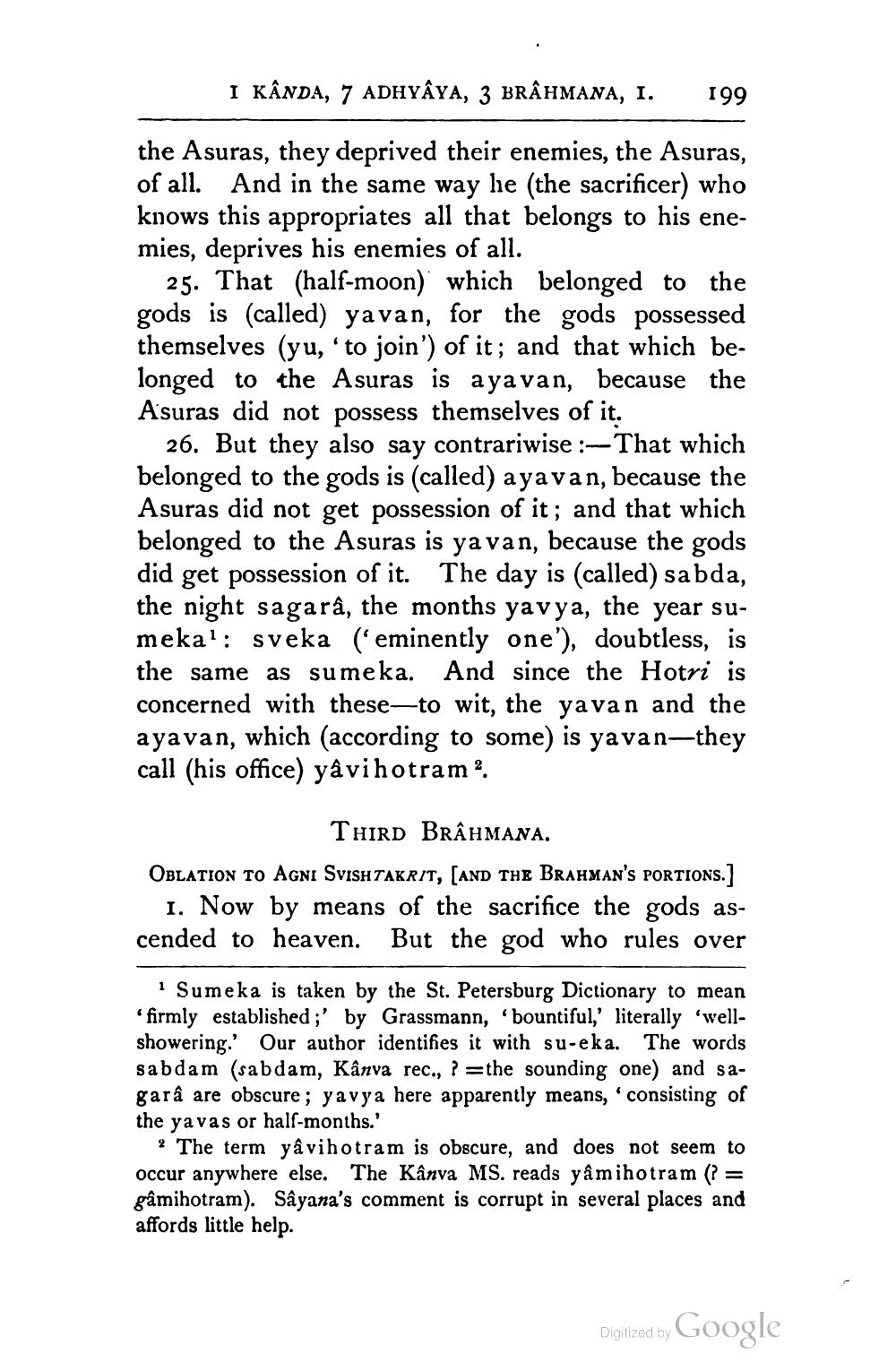________________
I KÂNDA, 7 ADHYÂYA, 3 BRÂHMANA, 1.
199
the Asuras, they deprived their enemies, the Asuras, of all. And in the same way he (the sacrificer) who knows this appropriates all that belongs to his enemies, deprives his enemies of all.
25. That (half-moon) which belonged to the gods is (called) yavan, for the gods possessed themselves (yu, 'to join') of it; and that which belonged to the Asuras is ayavan, because the Asuras did not possess themselves of it.
26. But they also say contrariwise :- That which belonged to the gods is (called) ayavan, because the Asuras did not get possession of it; and that which belonged to the Asuras is ya van, because the gods did get possession of it. The day is (called) sabda, the night sagarâ, the months yavya, the year sumekal: sveka (' eminently one'), doubtless, is the same as sumeka. And since the Hotri is concerned with these—to wit, the yavan and the ayavan, which (according to some) is yavan-they call (his office) yâvihotram 2.
THIRD BRAHMANA. OBLATION TO AGNI SvishtakRIT, (AND THE BRAHMAN'S PORTIONS.]
1. Now by means of the sacrifice the gods ascended to heaven. But the god who rules over
i Sumeka is taken by the St. Petersburg Dictionary to mean 'firmly established;' by Grassmann, 'bountiful,' literally wellshowering. Our author identifies it with su-eka. The words sabdam (sabdam, Kânva rec., ?=the sounding one) and sagarâ are obscure; yavya here apparently means, consisting of the yavas or half-months.'
2 The term yâ vihotram is obscure, and does not seem to occur anywhere else. The Kânva MS. reads yâmihotram ? = gâmihotram). Sâyana's comment is corrupt in several places and affords little help.
Digitized by Google




